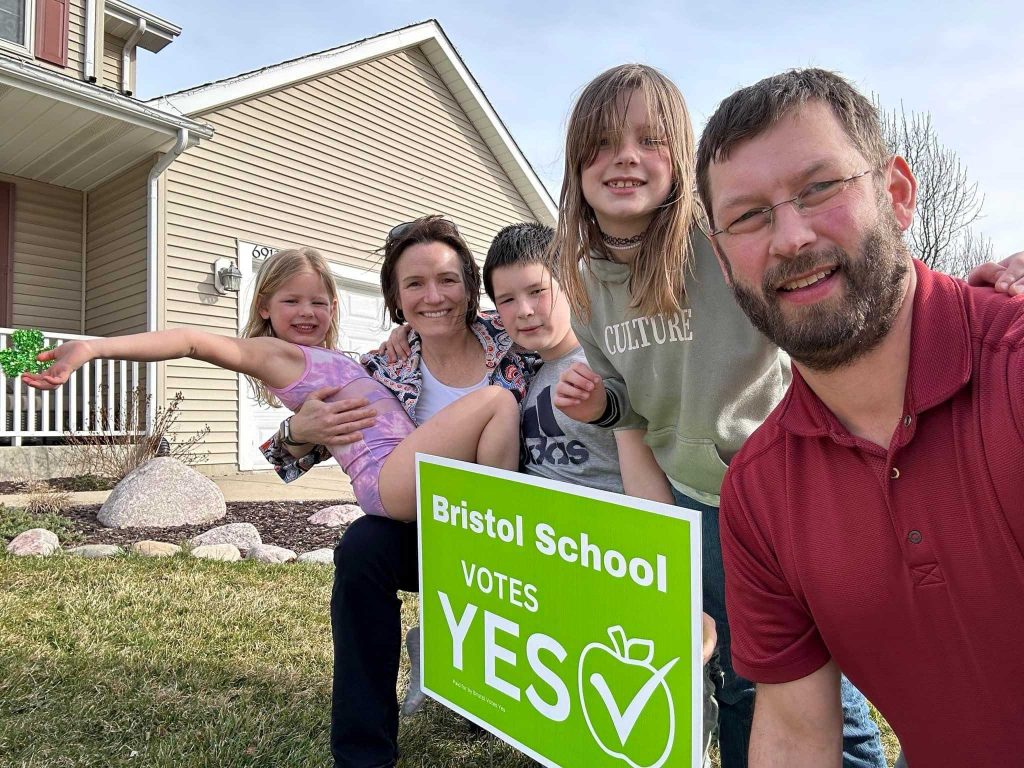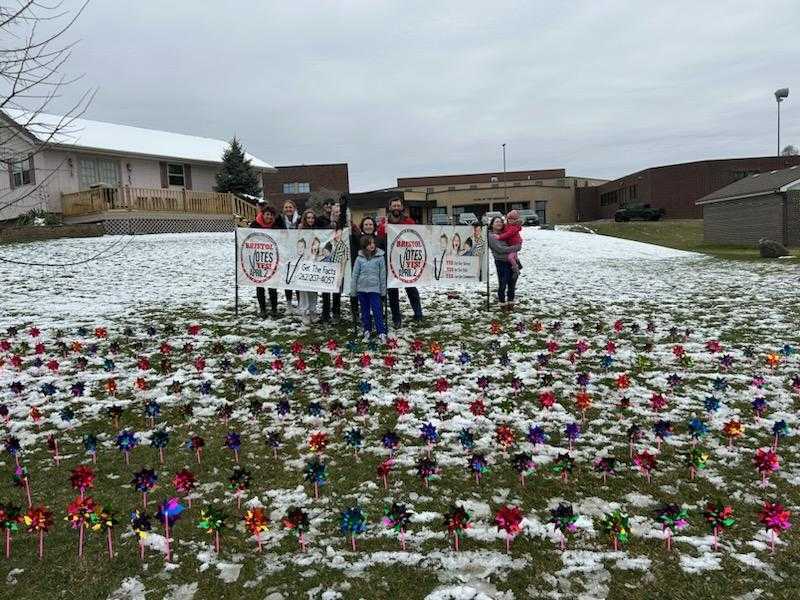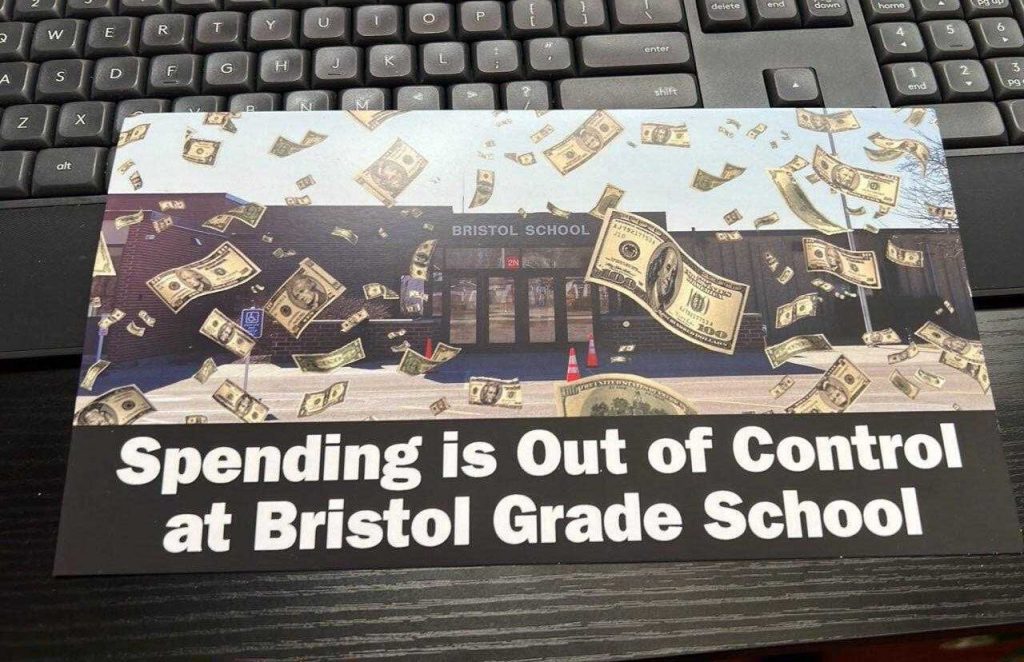85 School Districts Asking Voters for $1.4 Billion Funding
April ballot referendums driven by rising costs and inadequate state funding, officials say.
The School District of Beloit is one of 85 school districts across Wisconsin asking local taxpayers next week to help them meet higher expenses.
On Tuesday’s ballot, voters in the district will be asked to raise property taxes to fund $27 million that will go towards paying staff and maintaining district facilities, course offerings, programming, class sizes and special education. If approved, the district would exceed its revenue limits by $9 million in the 2024-25, 2025-26 and 2026-27 school years.
Willie Garrison, Beloit’s superintendent, says the district’s request is just to maintain the current services the district provides, and that without approval, the district will be looking at potential cuts in every area.
If the referendum passes, district taxpayers would pay an additional $2.15 per $1,000 of property value — an additional $215 per year for a property valued at $100,000.
The over 90 school referendum questions on ballots across the state in April total to over $1.4 billion in funding requests. The results will determine whether districts, like Beloit, are able to fund everything from operating costs, including the cost of staffing and curriculum, to construction projects. The requests come as public schools continue to grapple with increasing costs due to inflation and relatively flat funding from the state.
Beloit: Bumping its head against revenue caps
Beloit’s webpage about the referendum states that despite certain achievements — including maintaining its enrollment and balancing its 2023-2024 school year budget — the district still faces significant financial challenges “largely due to the state funding formula.”
Garrison said there aren’t many ways to get money into a school district. He pointed to a lack of increased funding from the state and inadequate increases in the per-pupil revenue limits as the reason the district is asking voters to raise property taxes.
School districts seeking to raise more money locally have had to go to voters to approve or reject requests.
The policy has increasingly led schools to rely on money approved via referendum to bolster local education funding.
A report by Forward Analytics found that in the 30 years since revenue limits were imposed, 356 of Wisconsin’s 434 school districts — 82% — have used the referendum option at least once. Most of those districts have used the option three times or less; 65 have used it once, 67 twice and 68 three times.
Recent increases in per-pupil spending limits, while helpful, have not been enough to help struggling school districts match the pace of inflation. In the most recent state budget, the Legislature included an increase in school spending limits of $325 per pupil, allowing them the option of raising property tax revenues.
“Unfortunately, school districts… are not fully funded by the state and nationally,” Garrison said. An example, he said, is that Beloit has to transfer over $9.5 million annually to cover special education expenses because Wisconsin only reimburses 33.3% of those costs. He said the district only has so many ways of bringing additional money in.
Bristol: Making a second try
Bristol School District #1 is taking a second shot at an operational referendum this year. Its first attempt — a $2.4 million request that would have covered $800,000 a year for three school years — failed by 153 votes in April 2023.
The school district, which is located in Kenosha County and serves more than 800 K-8 students, is asking its community to give the district permission to shift $700,000 in the 2024-25 and 2025-26 school years earmarked in the district budget for paying down debt and use it instead for operations, maintenance needs, and curriculum. The district has said that the request wouldn’t increase the district’s property tax rate, but the district needs approval from voters to shift the funds away from paying down debt.
“Inflationary costs don’t scoot around schools, so things like transportation and fuel prices, food for the kids that we serve every day… schools aren’t exempt from those costs,” Musha said. “We’d like to have a competitive wage for our employees — both our teaching staff or our custodians and our support staff. Our funding sources haven’t necessarily kept up with what our operational day to day costs are.”
Danielle Whitaker, a parent and school board member, agreed that the referendum would help address the current needs of the school rather than prepaying debt.
“By shifting that money, we can support our teachers and our staff, and we’re able to continue to keep on the program with these teachers and staff that our students really excel in. We’re absolutely finally headed in the right direction,” Whitaker said. She added that they would also be able to update their curriculum — a need that can no longer wait — and to maintain the new school building that will be finished in the summer.

Matt Ley, a member of the “Bristol Votes Yes” committee, and his family in front of a yard sign. (Photo courtesy of Matt Ley)
(In advocating for the referendum, Whitaker said she was speaking strictly in her capacity as a parent, not as a school board member.)
Musha said the district has had to dip into its fund balance to keep pace with expenses, and the fund has gotten low enough that district officials might have to consider short-term borrowing — something they’d like to avoid.
The district tried to avoid going to an operational referendum for as long as possible, he added.
District voters approved a building referendum in 2022 that raised $22.3 million to build a new school, Musha said “referendum fatigue”, and weak communications about the 2023 operational referendum request led to its rejection last year. This year, he said the district has worked to put out fliers and informational videos explaining the request.
Referendum supporters have also formed a “Vote Yes” committee — something they say last year’s referendum lacked. Corie Bies, a parent and Bristol school board member, said the absence of a referendum support committee is one reason the 2023 attempt failed.
“There wasn’t a committee that really got out there and publicized what the ask was and why, which is why we really took the community by storm this time because we saw the impact that having a “Vote Yes” committee had back in 2022,” said Bies, who also specified she was advocating as a parent, not as a school board member. She added that the committee is helping raise awareness and will help get people out to the polls.
A “Vote No” committee has also formed for the 2024 referendum. An unsigned mailer from “Bristol Votes No” that has been distributed in the community states, “We gave them $22.3 million in 2022, and they put their hand out again in 2023. Now again in 2024! Taxpayers have to live within their means, shouldn’t the school district?”
The mailer didn’t include any information about the individuals or organization behind it. Both Musha and the members of the “Vote Yes” committee said they didn’t know of anyone who has publicly taken responsibility for the “Vote No” push.
Musha noted that the issue has quickly become politicized, especially on social media. He said that he didn’t want that to be the case.
“As educators, we don’t do this to get rich. We do this because we care about the communities we serve and the kids that we’re here for,” Musha said. “It becomes vicious very quickly and I just don’t want our community to be divided over this, especially our local school. We’re just here to do what we feel is best for kids.”
Milwaukee Public Schools seeks $252 million
The largest request that will be on ballots in April comes from the state’s largest school district: Milwaukee Public Schools.
The district is asking for a $252 million recurring referendum that will be used for operational costs. It comes four years after its last operational referendum, where voters approved $87 million.
Without the referendum, the district has projected that it will face a $200 million budget shortfall, and schools are preparing budgets in the case of a “yes” or “no” result. A Wisconsin Policy Forum report found that it remains difficult to judge if “a failed referendum would mean $200 million of cuts, forgoing $200 million of hoped-for service expansions, the need for immediate steps to right size positions and facilities or a combination of all of the above.”
The Metropolitan Milwaukee Association of Commerce (MMAC), which is led by Dale Kooyenga, a former state senator, has dedicated a lot of resources towards campaigning against the referendum — spending over $400,000 according to finance reports filed this week. The Vote Yes for MPS campaign, which is funded by the Milwaukee Teachers’ Education Association union and other public schools supporters, in comparison has spent about $277,000.
In opposing the referendum, MMAC has cited the property tax increase that would result and a lack of clear plan for the funds and how they would help improve student outcomes. According to the district, property taxpayers would pay an additional $2.16 per $1,000 of property value. That represents, an increase of $432 for the owner of a $200,000 property.
“This referendum is being brought forward less than five years after passage of an $87 million revenue limit increase without a clear plan on how to improve educational outcomes, even as academic performance continues to be at or near the bottom of all major school districts,” Kooyenga stated in a letter. “We cannot continue to perpetuate the same strategies and expect different outcomes.”
Jenni Hofschulte with the Wisconsin Public Education Network noted that the 2020 referendum, which approved $87 million, was the first time the district had gone to referendum since the 1990s. She said it was implemented as a way to help put the arts back in MPS since at the time, the arts, music and physical education were not treated like integral parts of the school day. She said the 2020 referendum helped address that.
Hofschulte also pointed out that the question says the money will be used to maintain career and technical programs, keep certified educators and move forward with the district’s art, music and physical education and language programs.
“When people say we don’t know how the money is going to be spent. I think it’s kind of disingenuous,” Hofschulte said. “Referendum laws are really strict that that’s where the money has to be put.”
Hofschulte, an MPS parent, plans to vote for the referendum. She said that she understands that some people don’t want to pay more. However, she said she thinks that the school district will be in a better place if the request is used to support students now while people lobby the Legislature to spend more on public schools.
“I don’t want to pay more either, but I also know that we don’t have a future if we’re not taking care of the kids,” Hofschulte said. “MPS, overwhelmingly serves students that are economically disadvantaged and a much higher percentage of students with disabilities, and the state [is] not doing its part, and it’s on all of us to rally around the kids.”
Wisconsin schools to ask voters to fund over $1 billion next week was originally published by Wisconsin Examiner.




















Republican legislators made sure that the religious choice schools received huge increases in their State per pupil aid while public school district’s reimbursement still did not keep up with inflation. Why should it be the State’s responsibility to fund a student’s religious education when the student’s family and church community choose not to? If religious schools in a school district want government to pick up the cost of education, why shouldn’t they be forced to have a referendum like public schools have to?
Republicans want everyone to believe that these school districts take whatever revenue they are allotted by the legislature and use it to start bonfires in school courtyards instead of paying teachers, administrative staff, support staff, etc. They seem to be perfectly happy maintaining their “chicken or the egg” argument, whereby school districts have fewer and fewer resources (i.e. fairly allocated shared revenues) that lead to worsening scholastic outcomes, and then complain that the outcomes aren’t better, so why give them more resources?
I wonder what the $400,000 spent by the MMAC opposing the MPS referendum could have been allocated to by the school district to IMPROVE some things, rather than keeping their foot on the necks of those that are trying to improve scholastic performance at MPS.
The “no” mailers in Milwaukee were funded by CFC Action Fund, a group run by venture capitalists and voucher hacks. It’s all part of the $Republican$ plan to starve public schools to failure and swoop in with their money-grubbing voucher schools. Gotta make a profit!